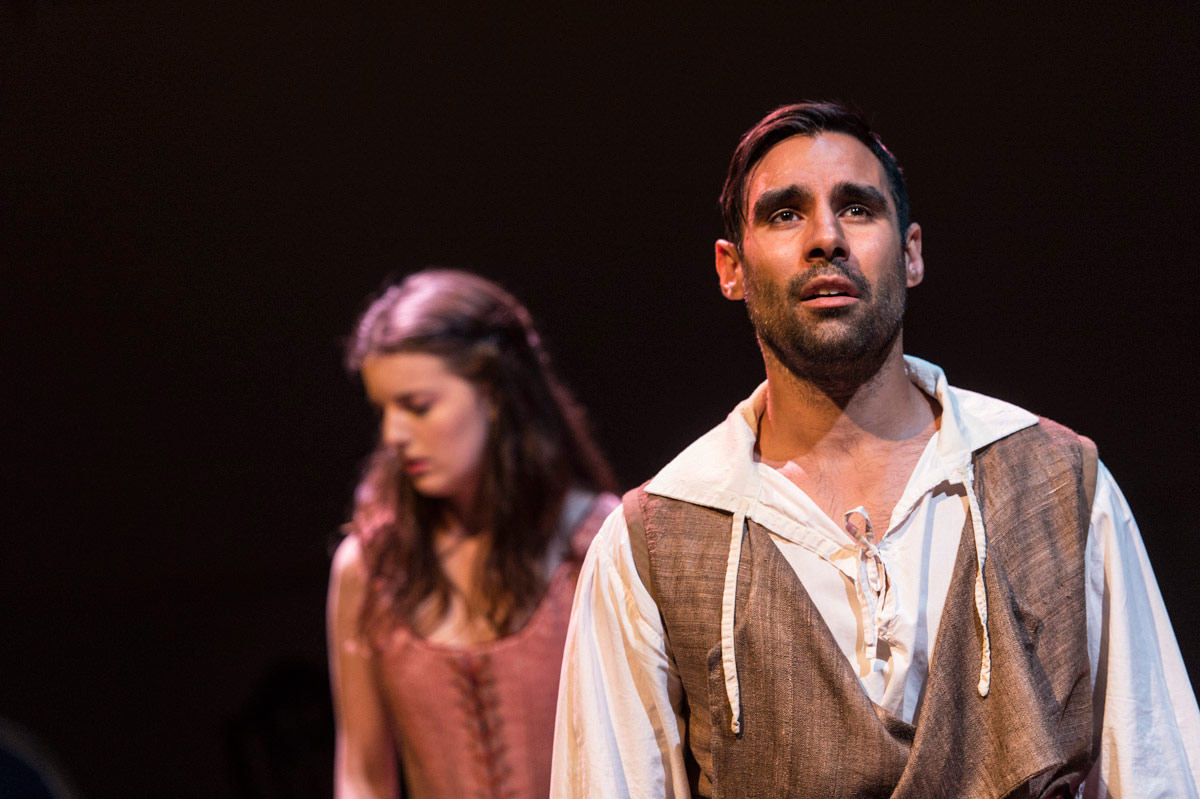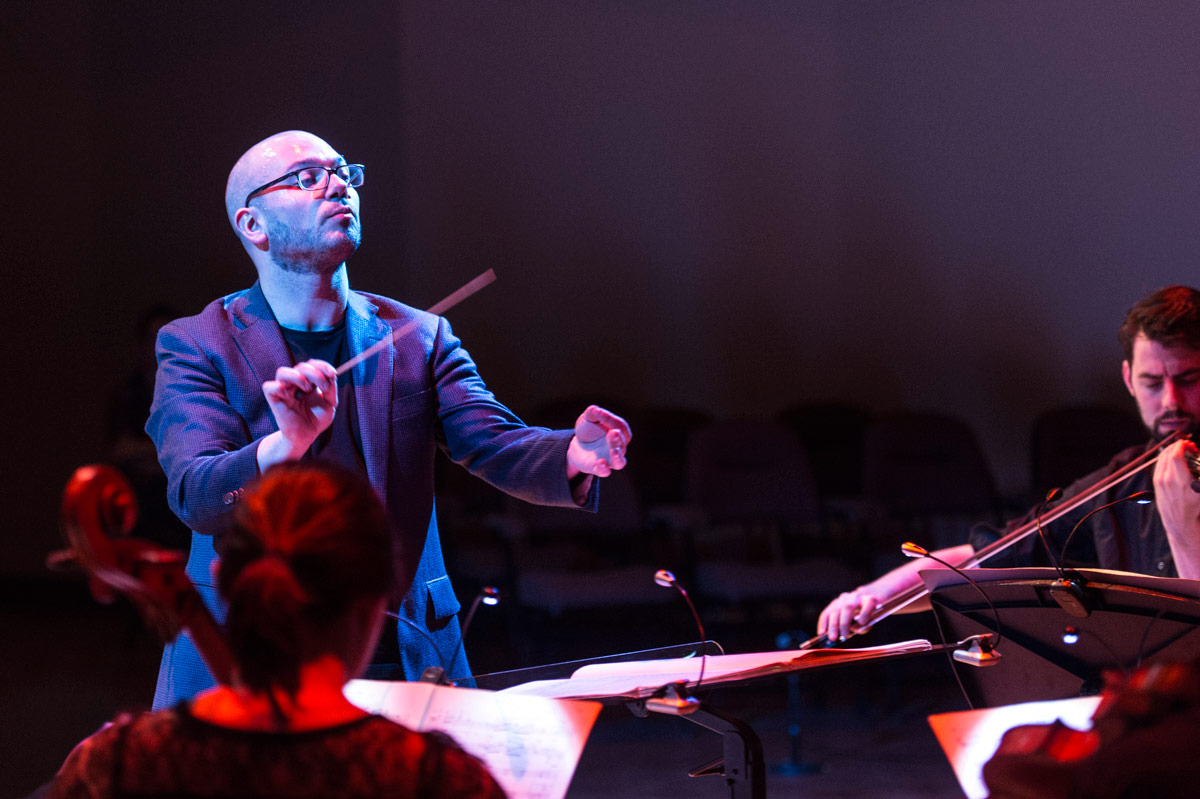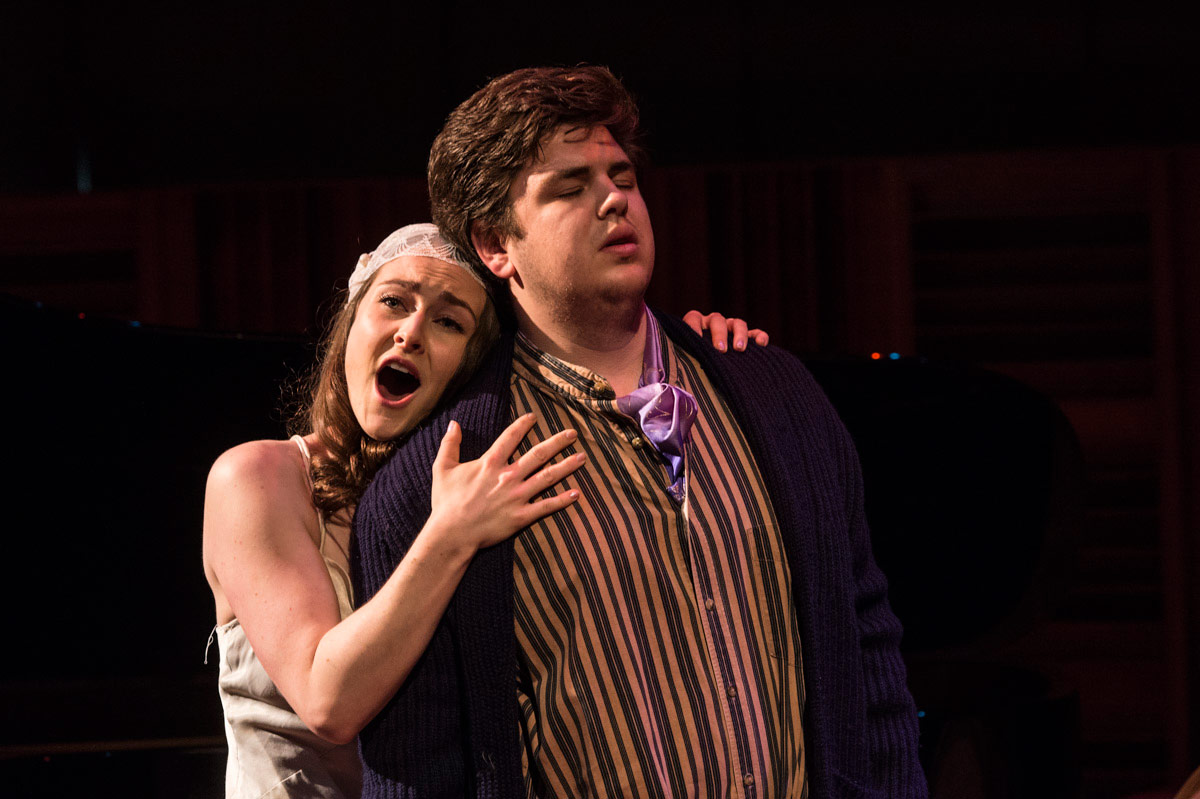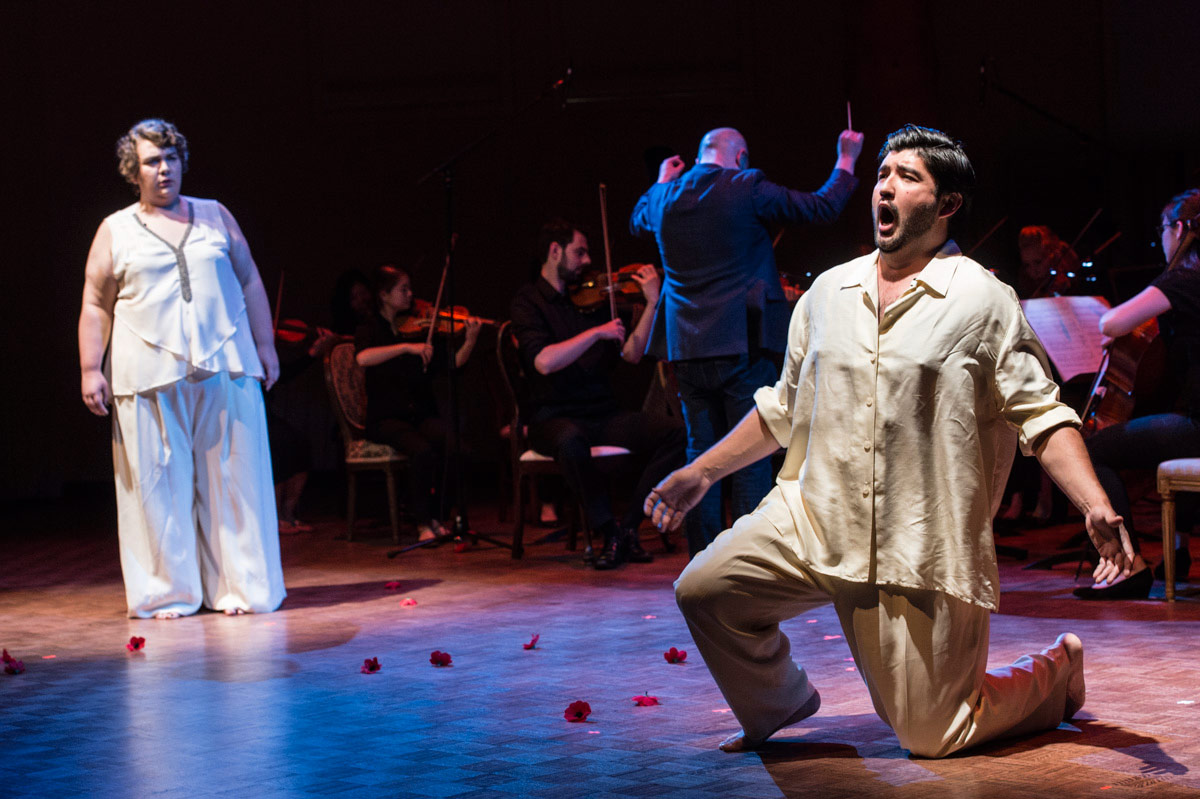
Music as Theatre: a chamber concert in Banff
ReviewThis week at The Banff Centre, the artists of Open Space: Opera in the 21st Century collaborated with the Master Class for Strings and Winds Program for an evening of chamber music at the Rolston Recital Hall. It sounds like your average chamber concert, but I promise you, it wasn’t.
I’m not about to write a review of the concert, because I’m too close to the artists who put it up to offer any form of objectivity. Yet, I couldn’t avoid writing about it; I was profoundly touched by what I saw and heard, in a way that I can’t equate to anything else I’ve seen in my life.

The program included Finzi’s Let us Garlands Bring combined with Korngold’s Four Shakespeare Songs; Messaien’s La mort du nombre; Zemlinksy’s Maiblumen blühten überall, and Wagner’s Fünf Gedichte von Mathilde Wesendonck. The programming itself was basically stunner after stunner, each selection capable of being a highlight piece for your average concert. In addition to fantastic singers and players combining forces, stage directors Joel Ivany and Amiel Gladstone, and lighting designer Noah Feaver created true scenes out of these pieces.

The Finzi/Korngold were played by pianist Jack Olszewski, and sung by Brent Calis, Simone McIntosh, Pascale Spinney, and Bruno Roy; we watched as they all told us two stories of two very different pairs of lovers. The Messaien brought me completely to tears, as Gladstone illuminated what’s already explicitly written in the score: the story of a man who has lost the woman he loves. With violinist Dasol Jeong and pianist extraordinaire Michael McMahon, singers Aaron Sheppard and Caitlin Wood broke my heart. I was taken aback at the release I felt (not to mention slightly embarrassed at my tearful response).

Shantelle Przybylo’s performance of the Zemlinsky was my first introduction to the piece, a completely overwhelming work for soprano and string sextet (Alice Hong and Sara-Hadley Hakir, violins, Barry Shiffman and Miguel da Silva, violas, Andres Diaz and Thomas Mesa, celli). The whole thing was sexy and tragic and it was one of those rare moments of collective breathing.
Wagner’s Wesendonck Lieder closed the night, featuring a full orchestra under the baton of Music Director Topher Mokrzewski, and sung by soprano Samantha Pickett and baritone Clarence Frazer. The music of course stands on its own, but two singers dressed in white, alluding strongly to Tristan and Isolde, brought the poetry to life.

I mentioned to Against the Grain Theatre’s Joel Ivany that I love how a staged chamber concert kept the audience’s eyes off their printed translations, and on the artists themselves. This was no small task; I know this from the complicated daily schedules here at Open Space, and the huge amount of people involved on the artistic and technical side of things. I think Against the Grain opened up some serious floodgates with their recent Death & Desire, which brought to life Schubert’s Die Schöne Müllerin and Messaien’s Harawi. Fortunate as we all are to share these singers with the string and wind players here in Banff, I think it was a big risk for both the Opera and Music programs. It’s not luck that it turned into something new and moving (and tear-inducing, even for this seasoned concert-goer); it’s because the music was great, and great artists brought it to life.
Bravi, everyone, and thanks for a special evening.


Comments